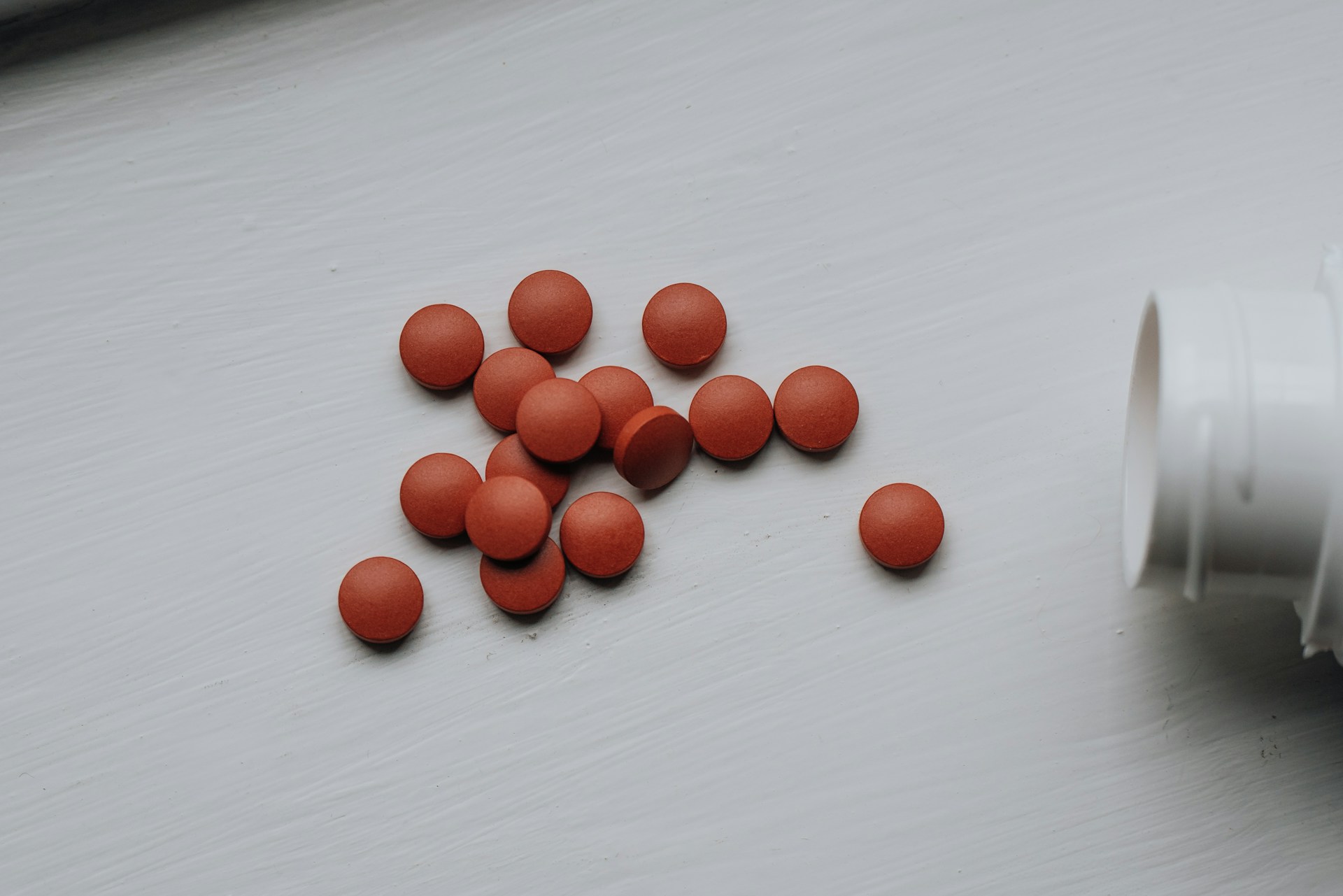Health
Nationwide Recall Issued for Over The Counter Pain Medications Due to Labeling Error

You may have been drawn to Amazon’s convenient and cost-effective platform for stocking up on household necessities, including the popular over-the-counter (OTC) drugs like aspirin and acetaminophen. However, it’s time to scrutinize your recent OTC drug purchases from Amazon, especially if you discover bottles bereft of necessary labels. A migraine medication sold nationwide is now under recall due to labeling issues.
On July 24, Aurobindo Pharma USA, Inc. voluntarily initiated a nationwide recall of their product, Healthy Living Migraine Relief, Acetaminophen 250 mg, Aspirin (NSAID) 250 mg, and Caffeine 65 mg tablets. The recall comes on behalf of AuroHealth and was triggered by grave concerns over mislabeling, as reported by a notice from the U. S. Food & Drug Administration (FDA).
This recalled medication, which hit the market in January 2024, was readily available for customers on Amazon. According to the release, the tablets are purposed to provide temporary relief from discomfort caused by various conditions, including headaches, colds, arthritis, muscle aches, toothaches, and cramps during premenstrual and menstrual periods.
Recognizing the Healthy Living Migraine Relief tablets is simple; they are “white to off-white, capsule-shaped, biconvex film-coated tablet debossed with ‘T’ on one side and ’57’ on the other side” and are typically packaged in 100-count bottles.
AuroHealth’s error lies in supplying Amazon with unmarked white bottles devoid of the essential OTC labeling information, drug facts sticker, or patient usage information, which are mandatory per FDA regulations.
Poison Control stipulates, “Every OTC medicine has a Drugs Facts Section. This is required reading before giving or taking a medicine.” They further explain that all products, from toothpaste tubes to allergy medication bottles, must display key information in a particular order: active ingredients, product’s purpose, product’s uses, specific warnings, dosage instructions, and inactive ingredients.
Unfortunately, Amazon merely affixed each bottle with “an Amazon identifying sticker” that sported the product name. Consumers were then shipped these mislabeled OTC medications, which could potentially lead to severe–sometimes fatal–health implications.
According to the recall notice, misuse of the product can lead to a “significant risk of misuse which could result in permanent liver damage if consumers exceed the recommended dose, combine use with excessive consumption of alcohol or are allergic to the active ingredient which could be life-threatening.”
If you possess this product, Aurobindo Pharma advises that you can verify whether your purchase is impacted by the recall by referring to the National Drug Code (NDC) and lot number. Affected OTC medications will carry a 10-digit NDC that reads “58602-882-21” and a lot number “AC2523005A.” The bottles also bear a “June-2025” expiration date.
In case you have been taking this OTC drug or have experienced abnormal health effects while using it, it’s recommended to reach out to your healthcare provider for immediate medical assistance. Should you need to put forth queries about the recall or report an adverse event, Aurobindo Pharma has a 24-hour hotline (1-866-850-2876, Option 2) and can be reached via email at [email protected].
Let us know what you think, please share your thoughts in the comments below.

Health
Boost Your Flu Shot Effectiveness with These 6 Foods to Eat and Avoid

As flu season approaches, it’s crucial to take steps to protect yourself from viral illnesses. The Centers for Disease Control and Prevention (CDC) emphasize that getting a flu shot annually is the most effective way to reduce the risk of seasonal flu and its complications. However, lifestyle factors like diet can significantly influence how effective your flu shot will be. Jennie Stanford, MD, FAAFP, DipABOM, a double board-certified physician, shares insights on which foods can boost or hinder your flu shot’s effectiveness. Here are the six best and worst foods to consider.
Fatty Fish
Eating fatty fish such as salmon and sardines can help fight inflammation due to their richness in polyunsaturated fats (PUFAs), specifically omega-3 fatty acids. A 2010 study highlights, “The anti-inflammatory effects of marine n-3 PUFAs [such as the omega-3s EPA, DHA, and DPA] suggest that they may be useful as therapeutic agents in disorders with an inflammatory component.” If seafood isn’t to your taste, consider chia seeds, olive oil, and avocados as alternative anti-inflammatory foods.
Processed Foods
Processed foods are high in sodium and refined carbohydrates, which can lead to inflammation. These are often found in fast food and pre-packaged items like chips, cookies, and frozen meals. Stanford warns that these foods “can make side effects worse after vaccinations,” making them a poor choice if you want to maximize your flu shot’s effectiveness.
Berries
Berries are packed with antioxidants, which can help boost your immune system. Stanford notes that their high antioxidant content makes them particularly beneficial during cold and flu season. Other antioxidant-rich foods like leafy greens, turmeric, and green tea can also enhance your flu shot’s effectiveness.
Foods High in Added Sugars
Foods loaded with added sugars can contribute to inflammation, potentially undermining the benefits of your flu shot. Sweet treats like ice cream, cake, and candy fall into this category. Instead, try satisfying your sweet tooth with natural sources of sugar, such as high-fiber fruits.
Alcohol
While there is no definitive data showing that drinking alcohol immediately before or after your flu shot compromises its effectiveness, frequent alcohol consumption can negatively impact your immune system. The Alcohol and Drug Foundation (ADF) explains, “The immune system is made up of two parts: The innate immune system: this provides general immunity by responding to viruses, bacteria and other microorganisms that can cause disease [and] the adaptive immune system [which impacts] your immune memory.” Drinking affects both parts of the immune system, potentially reducing your body’s ability to respond to the flu shot.
Antioxidant-Rich Foods
In addition to berries, other antioxidant-rich foods can also help increase your flu shot’s effectiveness. Leafy greens, turmeric, and green tea are excellent choices. These foods can boost your immune system, making it easier for your body to respond effectively to the flu vaccine.
Taking steps to enhance the effectiveness of your flu shot through diet can make a significant difference in your overall health during flu season. By incorporating anti-inflammatory and antioxidant-rich foods while avoiding processed foods, added sugars, and excessive alcohol, you can give your immune system the support it needs.
Let us know what you think, please share your thoughts in the comments below.
Health
Pain Relievers Linked to Increased Tinnitus Risk, Study Finds

If you regularly use over-the-counter pain medications such as ibuprofen, acetaminophen, or aspirin, it’s important to be aware of potential risks. Recent research suggests that frequent use of these medications could increase the likelihood of developing tinnitus, commonly known as ringing in the ears.
A study published in the Journal of General Internal Medicine followed over 69,000 women for two decades. The findings revealed that those who frequently took nonsteroidal anti-inflammatory drugs (NSAIDs) or acetaminophen had nearly a 20 percent higher risk of experiencing tinnitus.
“Because over-the-counter analgesics are widely available without a prescription and perceived to be safe, frequent use of these medications is very common,” explains Sharon Curhan, M.D., the lead author of the study and an assistant professor of medicine at Brigham and Women’s Hospital, Harvard Medical School.
“Most people are not aware of the potential harm that these medications may cause and the possibility of adverse interactions with other medications, particularly when used frequently,” Curhan adds.
Many cold and sinus medications also include these painkillers, which can lead to unintentional overuse.
“It’s possible to take more of these medications than is intended or recognized,” Curhan notes.
Interestingly, the study found that frequent use of low-dose aspirin (100 mg or less) did not increase the risk of developing tinnitus. Curhan describes this as a “helpful finding,” especially for those who take low doses of aspirin to prevent cardiovascular issues and other conditions.
Moreover, women aged 60 and older who frequently took moderate doses of aspirin (325 mg or more) did not show an increased risk of tinnitus. However, the risk was higher among younger women. All participants in the study were initially between the ages of 31 and 48 and did not have tinnitus at the start.
Previous research has also indicated a connection between regular use of aspirin, NSAIDs, and acetaminophen and hearing loss in men. The new study emphasizes the need for further research on the relationship between pain medication and tinnitus in men and non-white women.
Understanding these risks can help you make more informed decisions about your health. Always consult with a healthcare provider before making any changes to your medication regimen.
Let us know what you think, please share your thoughts in the comments below.
Health
Why You Might Be Losing Sleep and How to Fix It

Suddenly finding yourself unable to sleep can be frustrating and perplexing. Insomnia can stem from various causes, and understanding these can help you regain restful nights.
Napping Habits
Many adults unintentionally fall asleep while watching TV or when not busy. According to Dr. Doghramji, “your brain sees it as sleep.” This often occurs between 2 and 3 in the afternoon, a natural energy dip time. This can make you less tired at bedtime, leading to insomnia. Instead of napping, consider scheduling an active task during this period to boost energy and improve sleep quality.
Nap Wisely
If a nap is unavoidable, Dr. Pelayo suggests keeping it under 40 minutes to avoid grogginess. It’s also beneficial to nap where you usually sleep to maintain a consistent sleep environment.
Bedtime Activities
Reading might seem like a relaxing pre-sleep activity, but Dr. Harris advises against doing it in bed.
“I prefer that the bed is only used for sleep and sex,” she says. Activities like puzzles or coloring can also make your brain associate the bed with wakefulness, affecting your ability to fall asleep.
Alcohol Consumption
A glass of wine might help you fall asleep initially, but it can cause fragmented sleep later. Research indicates that alcohol can lead to lighter sleep in the second half of the night, causing you to wake up around 3 a.m. To minimize this, limit alcohol intake to three hours before bedtime and drink moderately.
Medication Timing
Poor timing of medications can disrupt sleep. Diuretics for blood pressure can increase nighttime urination, and some antidepressants can be either energizing or sedating. Dr. Doghramji notes that taking more than one or two bathroom breaks at night is abnormal. Always consult your doctor before adjusting medication timings.
Managing Stress
Stress can make falling asleep difficult and lead to fragmented sleep. Dr. Pelayo suggests keeping stressors, like bills, out of the bedroom.
“Put it in a separate room so when you go to your room, it’s a different world,” he says. Journaling or making lists can help manage persistent thoughts.
Sleep Environment and Routine
Lying in bed trying to force sleep can backfire. Dr. Harris recommends getting up and doing something relaxing in a different room if you can’t sleep.
“Sleep will come when it comes. If not tonight, don’t sleep in to compensate — and you’ll likely sleep better the next night,” she says.
Sleep Disorders
Insomnia can be a symptom of over 80 sleep disorders, including sleep apnea, restless leg syndrome, and narcolepsy. Older adults are particularly susceptible to REM sleep behavior disorder (RBD), which can be an early warning sign of neurodegenerative conditions like Parkinson’s. Non-sleep disorders, such as pain, arthritis, and PTSD, can also cause insomnia.
Exercise
Exercise can improve sleep quality, but working out too close to bedtime might be counterproductive. Aim to exercise at least two hours before bed to allow your body to wind down.
Treatment Options
Cognitive Behavioral Therapy for Insomnia (CBT-I)
CBT-I is often the first-line treatment for insomnia, addressing habits and thoughts that keep you awake. Medication can be an option but comes with side effects, especially for older adults. A newer category of medication, dual orexin receptor antagonist (DORA), has shown promise for older adults with insomnia.
CBT-I can help retrain your thoughts to calm your mind. Dr. Doghramji suggests using CBT-I apps during the day to practice these skills.
When to Seek Help
If insomnia impacts your daytime function or persists despite self-help efforts, consult a doctor. Working with a sleep specialist can help identify the root causes and establish a personalized treatment plan.
“Modern sleep medicine has reached a point where most sleep disorder will improve when addressed correctly,” says Dr. Pelayo. “So you shouldn’t suffer with a sleep disorder anymore.”
Let us know what you think, please share your thoughts in the comments below.
-

 Health4 months ago
Health4 months ago17-Second Neuropathy Solution
-

 Health11 months ago
Health11 months agoPreventing Falls and Injuries for Seniors
-

 Nutrition8 months ago
Nutrition8 months agoThe Aging Secret of Vitamin D Unveiled
-

 Health3 months ago
Health3 months agoOncologist Reveals Top 5 Cancer Prevention Tips You Shouldn’t Ignore
-

 Nutrition12 months ago
Nutrition12 months ago5 AMAZING Dinner Recipes That Are Also HEALTHY
-

 Lifestyle4 months ago
Lifestyle4 months agoSleep Soundly with These 11 Expert-Approved Bedtime Routines
-

 Health9 months ago
Health9 months agoDownsizing Tips: Simplifying Your Lifestyle
-

 Lifestyle2 weeks ago
Lifestyle2 weeks agoMorning Habits That Could Add Years to Your Life